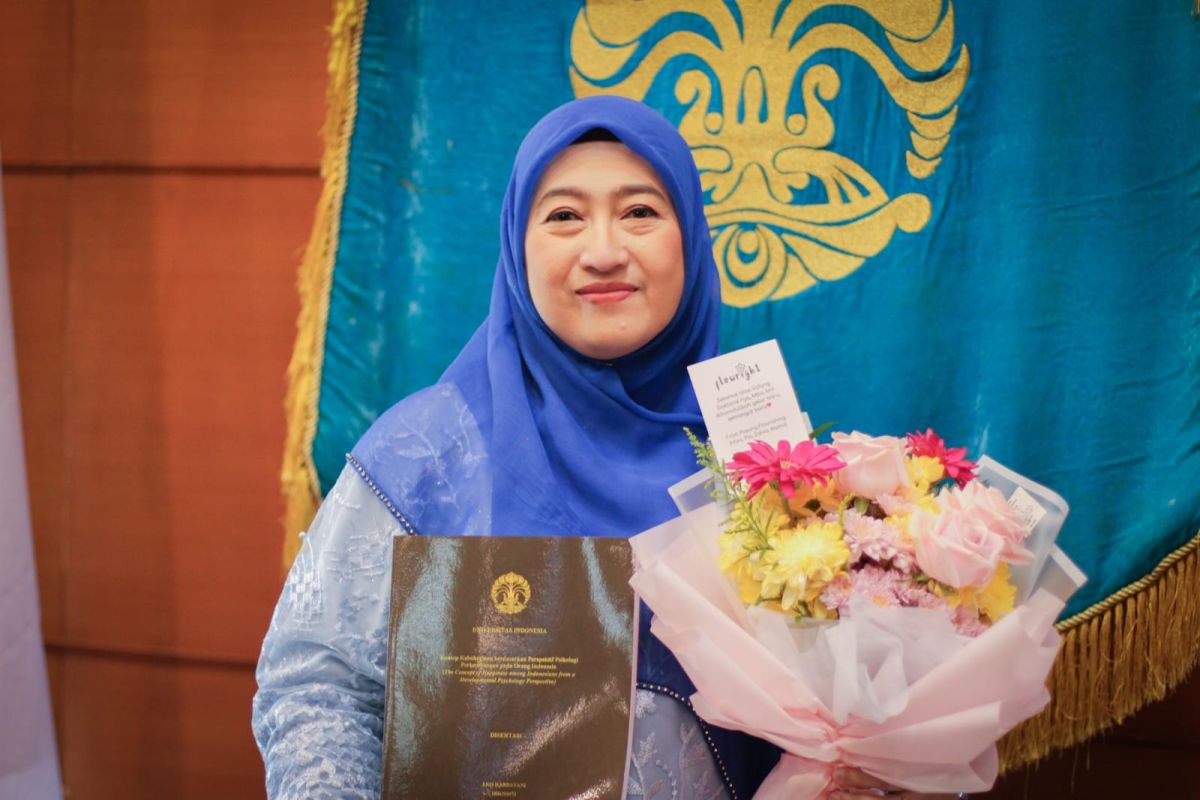The research, entitled Concept of Happiness According to Psychology Development Perspective of Indonesians, was conducted by a doctoral student of the university’s Psychology Faculty, Eko Handayani.
“Happiness is subjective, hence it is important to understand an individual’s concept of happiness before gauging their happiness level,” Handayani said in Depok, West Java, on Tuesday.
For example, parents and children value happiness differently. Parents often consider their children to be much happier compared to how children report their own happiness, she explained.
This shows that there are differences in the concept of happiness between the two distinct age groups, she said. These differences often lead to misunderstandings, particularly when an individual wishes to make others happy, but has no idea how.
Often, the individual ends up referring to their own concept of happiness as the basis of that effort. Handayani called this egocentric bias.
“The concept of happiness is the cognitive representation of (one’s) characteristics and experiences regarding happiness, and the cognitive aspect changes throughout the lifetime,” she explained.
Cognitive development influences the concept of happiness developed by an individual, she said. Moreover, cognitive development is also determined by interactions with the social environment, she added.
She said that happiness is the most valuable good, as it also improves physical, mental, and emotional well-being, and it is the main driver of mankind’s existence.
“Happy people tend to enjoy life and try to make their lives more meaningful. The importance of happiness in humans’ lives drives many researchers to focus on gauging individuals’ happiness level and identifying the factors,” she added.
The concept of happiness across different age groups is tied to the hedonic paradigm, which is related to positive feelings. However, the eudaimonic paradigm is tied to values such as togetherness, spirituality, and religious aspects.
The study found that the concept of happiness varies across five age groups: children, teens, young adults, middle-aged adults, and older adults.
The research comprised two studies. The first study explored the concept of happiness across five age groups. At least 771 respondents, aged 9–75, took an online qualitative survey as part of the first study.
It was followed up by a second study one year later. It involved 40 participants from the first study who consented to be interviewed in a semi-structured format. The interview aimed to gain better insights into their concept of happiness and their childhood experiences of happiness.
The study revealed distinct views across age groups. Handayani informed that children associated good feelings with doing enjoyable activities with others.
Teens defined happiness as the joy of receiving something, such as appreciation from close ones, while young adults described happiness in terms of achievements, support from close ones, and doing good deeds.
Middle-aged adults derived happiness from seeing others happy, and older adults saw happiness as a state of peace, sans conflict, and a strong closeness with God.
Related news: Staying happy can help seniors maintain health: Minister Rismaharini
Related news: Sidaya program aims for happy, healthy elderly: Minister
Translator: Feru Lantara, Mecca Yumna
Editor: Primayanti
Copyright © ANTARA 2025









